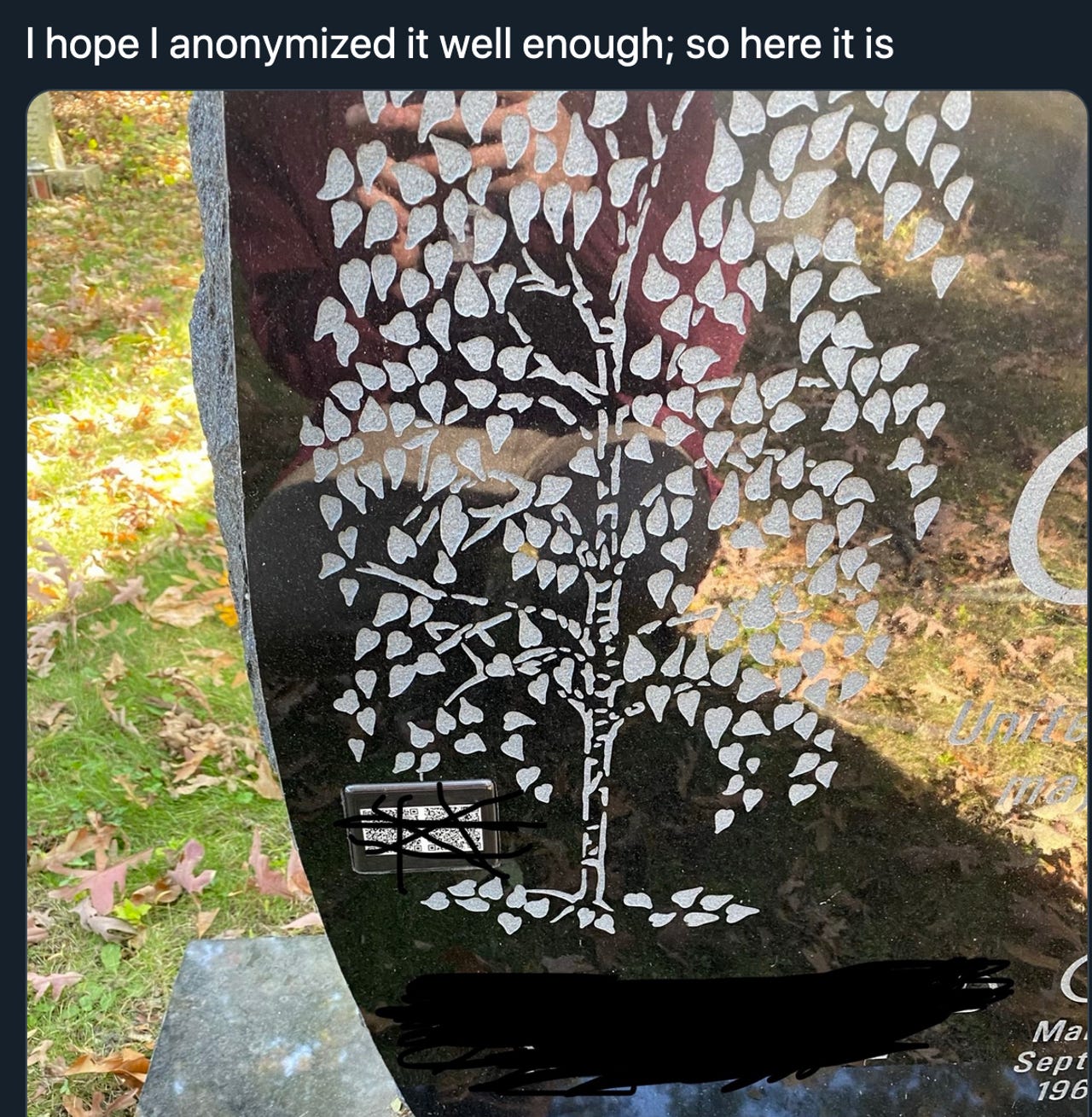A QR code on your gravestone? It's dead serious

Scan to see who I really was. Or, at least, how I'd like to be remembered.
I don't like to think about death, as I've not heard good things.
ZDNET Recommends
I'm sure, however, that I'll feature my lone virtue on my gravestone. It'll read: "He always turned up on time."
Still, many others want their life's work to live long beyond them. They believe they have a legacy that others should respect, or at least know about.
I judge this from a fascinating picture recently posted to Twitter by self-described visualization librarian Justin Joque.
Here was a gravestone adorned with a QR code.
I hope I anonymized it well enough; so here it is pic.twitter.com/UH9vmBujx5
— Justin Joque (@jjoque) October 10, 2020
The QR code didn't link to a list of the dead man's exciting life exploits or, perhaps, secrets he wanted told from the grave.
Instead, Joque explained, it linked to a list of the dead man's publications and citation metrics.
Was this an act of wit or an academic's desperate plea for recognition?
Was this a scream to say: "You didn't know me, but here, take a look! My life meant something!"?
We all could have been contenders for something, if only life hadn't dragged us in other directions.
Joque explained that he anonymized the QR code in his image because he didn't "necessarily want to encourage this kind of academic behavior."
He added that making something public was one thing in a graveyard that few might witness and quite another in a place where many hundreds of thousands might see it.
I confess I hadn't even realized that QR codes on gravestones was a thing. It has, though, been such for some years.
As long ago as 2012, enterprising tech companies were creating whole websites for the living to link to, from one little QR code in a cemetery.
There's a deep humanity to the idea. When we walk through graveyards, we see names and dates. Occasionally, we read the names of loved ones left behind. Rarely, however, do we know who these people were, how they lived, and what their lives truly meant to others.
This way, we can pull out our cellphones as if we were in a museum, see the face beneath the gravestone and learn, perhaps, about their passions, their loves, their achievements, and even their disappointments.
I wonder, though, how many people would wish to present a truly unvarnished exposition of themselves rather than a Hollywoodesque tribute to a life (allegedly) well lived.
Don't many of us look back and mutter to ourselves: "I was such a fool, wasn't I?"
